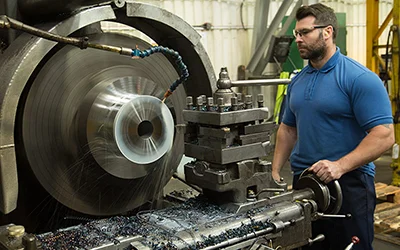A shot in the arm for the global economy, or is it too soon to tell?
Updated: 18 November 2020
,Jonathan Andrew
Most years have moments that define them, but few have historic events that are (almost) simultaneously felt around the world. 2020 has been defined by just this, and according to the International Monetary Fund, Coronavirus has plunged the world into “a crisis like no other.”
In addition to the serious health implications and human tragedy, the impact on small and medium sized businesses has been monumental.
In Europe, Brexit has continued to create uncertainty for SMEs on both sides of the Channel, while in the U.S. a heated election campaign has left the country divided. In a normal year these challenges would be enough to cause economic headwinds, but the curveball of Covid-19 brought widespread changes to the way we live, work and trade.
However, as a new year rapidly approaches, there are reasons to be hopeful for a different year in 2021.
With the possibility of a shift away from protectionist policies, Joe Biden’s election win has been received warmly by global markets, a sign that confidence is returning to the world’s largest economy.
Even the smallest businesses have complex networks of suppliers, staff and clients which span the globe. A more outward looking America, engaged with global institutions like the World Trade Organisation, helping to promote free trade, will have an impact far beyond U.S. borders. Joe Biden has already indicated that the U.S. will be re-joining the Paris Climate Agreement; a positive first step in re-integrating America into the global community.
There are also early signs that the impacts of the pandemic may soon begin to subside, with milestone announcements firstly from Pfizer and BioNTech, and subsequently Moderna signalling hope that an effective vaccination may be in sight.
While the Bank of England estimates an uptick in growth in 2022, I believe the heady mix of political progress and a potential recovery from the pandemic could see a boost in the global markets as early as the second half of 2021.
The question is, will businesses be able to flick the switch to growth once the economy opens up again? I believe the answer is yes, but only if they start planning for growth today, and this involves considering stock and inventory, staffing levels, supply chains, and – importantly – cashflow. For businesses in Europe, it also means looking ahead to how the final stages of Brexit could impact them.
Back to Brexit
Boris Johnson is set to negotiate the UK’s terms at this week’s EU summit, which has now been marked as ‘the final deadline for a draft Brexit deal’. But there’s still much for businesses to consider, irrespective of which industry sector they operate within.
While accounting for just 0.12 percent of UK GDP, a good example of the complexities of the UK’s economic disentanglement can be found in fishing . A Scottish fishery, for example, would need to understand the potential changes to tariffs, quotas and markets, and be well-versed in the required paperwork, if they are to continue to trade successfully with the likes of Spain and other European markets.
The end of free movement for EU workers will also impact many businesses. The Government’s post-Brexit immigration system implemented earlier this year has already hit the UK’s fruit and vegetable producers who are struggling to replace the migrant workers who filled up to 60 per cent of jobs in the industry.
These issues combined with border delays and additional red tape are the last thing needed by UK and European businesses when attempting to focus on an economic recovery of this magnitude.
Whether or not the calls from some corners for an extension to the transition period are realised, Brexit will happen and businesses must be prepared. While it’s impossible to plan for every Brexit scenario, SMEs can take charge of their own operations by managing their cashflow, evaluating supply chains and getting guidance on the tariffs, legislation and standards that will directly affect their specific markets.
While we all acknowledge it’s been a tough year, SMEs around the world have once again shown that they have the ambition, resilience, and resourcefulness to overcome unprecedented challenges. To truly thrive, SMEs now need to recognise that this is a turning point and plan ahead for a return to business, whatever the future looks like.
Furthermore, while recent changes in the U.S. administration, coupled with the hope of effective vaccines have given markets the shot in the arm they needed, only time will tell as to whether these events will have the lasting effects required to kick-start economic recovery.

